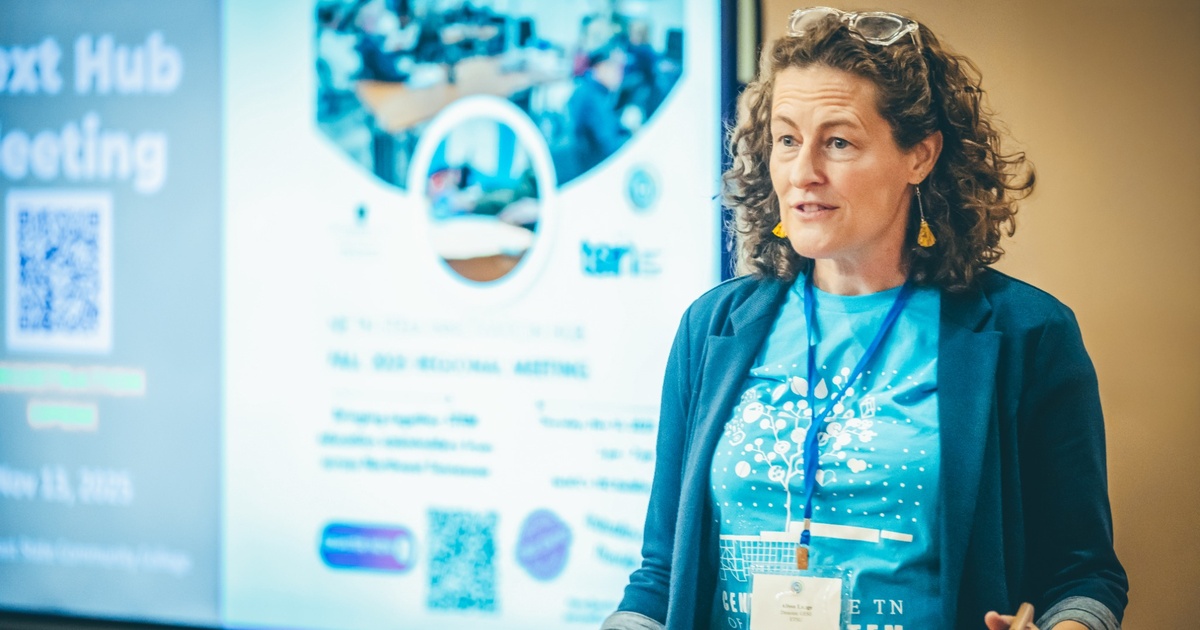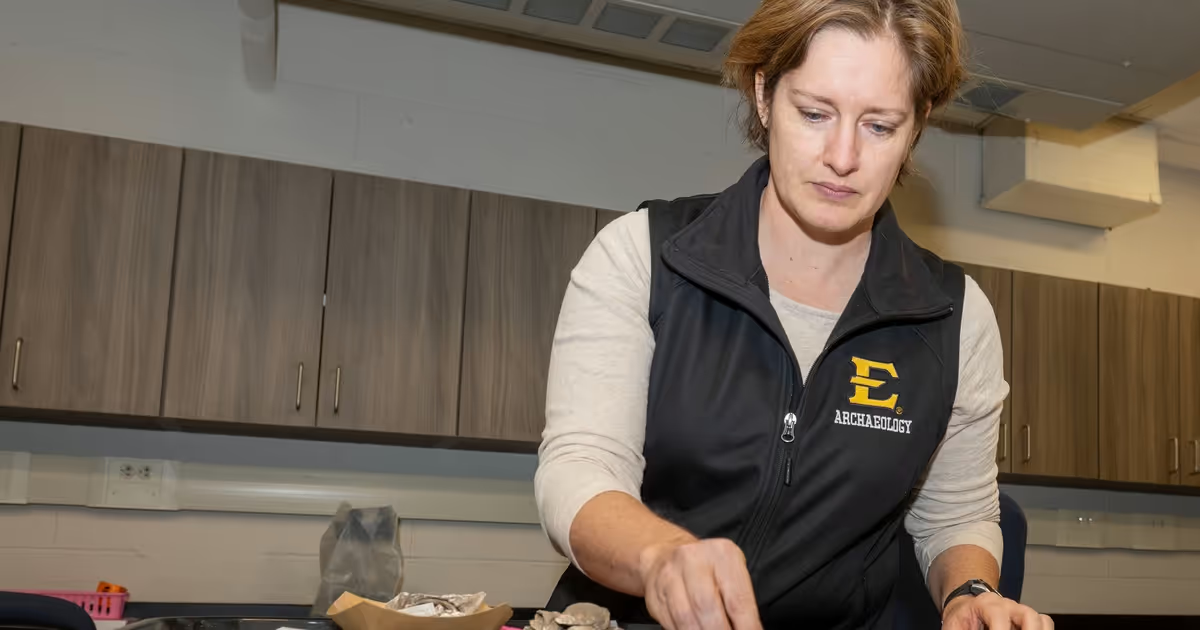When Trent Lewis takes the stage this week at the international Genetically Engineered Machine (iGEM) competition in Paris, he’ll showcase more than just a research project. He will represent ETSU’s growing reputation as a powerhouse in synthetic biology and the university’s commitment to solving global challenges.
“ETSU has provided me and everyone on this team with so many incredible opportunities,” said Lewis, who joins Zoe McCready as one of two ETSU iGEM student team members competing at the Giant Jamboree from Oct. 28-31. “To be able to shine a light on such a wonderful community in front of the biggest stage in the world of synthetic biology is not only rewarding, but also very humbling.”
The stakes are high. The innovation is cutting-edge. And the potential impact could reach two billion people worldwide.
What is the ETSU team’s project about?
The ETSU team is tackling micronutrient deficiencies – also known as hidden hunger – that affect over two billion people globally. Unlike starvation, hidden hunger stems not from lack of food but from diets lacking essential vitamins and micronutrients.
Seeds form the basis of much of the world's diet and are rich in energy but often poor in essential vitamins like provitamin A, folate, and vitamin E. The frustrating reality? Plants can synthesize these vitamins, but key genes for this biosynthesis remain inactive in seeds like soybeans.
The ETSU team’s solution: engineer soybean seeds to produce beta-carotene (which produces vitamin A in humans) without creating genetically modified organisms.
Why does this research matter?
The project builds on groundbreaking work by Dr. Tianhu Sun, ETSU assistant professor in the Department of Biological Sciences, who received the prestigious Foundation for Food & Agriculture Research New Innovator Award for his research on naturally boosting vitamin content in seeds.
“This work demonstrates the real-world applications of synthetic biology in addressing global nutrition challenges,” said Sun. “Our students are not just learning in the classroom – they’re contributing to research that could improve lives around the world.”
What makes the iGEM competition significant?
The iGEM Giant Jamboree in Paris brings together teams from around the world to celebrate innovation in synthetic biology. The internationally renowned event provides a platform for students, researchers and professionals to present projects, share discoveries and collaborate on biotechnology advances.
“People from institutions and biotechnology companies worldwide will be at this event, and I want to connect with as many people as possible and learn about as many projects as I can, and get ETSU’s name out there,” he said.
How does this reflect ETSU's research mission?
University leaders see the Paris competition as validation of ETSU’s commitment to high-impact research that addresses global challenges.
“Congratulations to our team for representing ETSU on this prestigious international stage,”said Dr. Kimberly D. McCorkle, provost and senior vice president for Academic Affairs. “Their work exemplifies our mission to conduct research that improves lives and builds healthier communities around the world.”
ETSU officials thanked the various funding support that enabled the students to travel to Europe.
The competition represents the kind of hands-on research experience that distinguishes ETSU’s approach to education. Students don’t just learn about cutting-edge techniques – they employ them to address real-world problems.
"To be able to represent our region truly is an exceptional honor and privilege. Laying the framework as a team and setting the stage for ETSU's participation in the iGEM competition has been a priceless opportunity that it has been such an honor to be a part of and see come to fruition," McCready said. "We are representing the support of all of those who have had faith in us as we have embarked on this journey. All of the challenges and hurdles we have navigated as a team have led up to this, and I truly cannot express my gratitude to all of those who made this possible."





